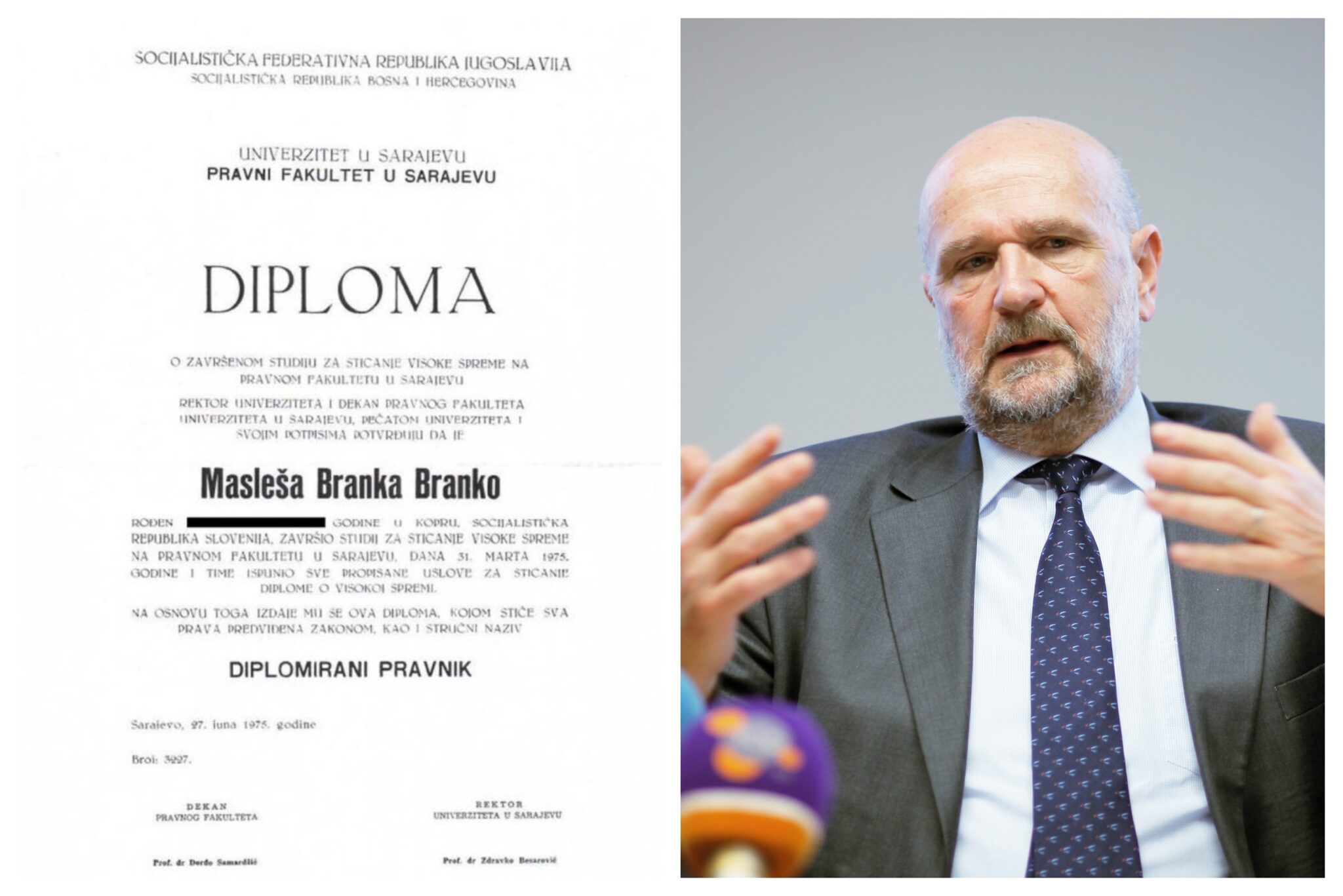By: Sara Bertoncelj / Nova24tv
The Judicial Council, an institution that is supposed to protect the autonomy and independence of the judiciary and ensure the quality of the work of the courts, has again intimidated the public. Today, at the regular session, the currently non-existent diploma of the Supreme Judge Branko Masleša, known from the illegal trial in the Patria affair, was to be discussed. Masleša, who according to Pučnik’s law should not be a judge, is currently in the spotlight because he does not show his diploma, the existence of which is doubted by some media, including Prava.si, Požareport, Demokracija and Siol. Perhaps even more questionable is his bar exam, which he passed in BiH immediately after completing his military service – although he should have completed an internship in the same year, which is a condition for taking the exam.
The Judicial Council – which described the Supreme Court’s communication as inappropriate as they tweeted that Branko Masleša should sue the media and would win the lawsuit – should have decided on Judge Masleša today, they were also expected to discuss the explanation of the President of the Supreme Court Damijan Florjančič regarding the education of the Supreme Judge and threats to journalists with lawsuits. The session would take place live, and the media would wait in front of the building with questions for council representatives – they announced that the sessions of the Judicial Council are usually closed to the public, which also excludes the possible presence of journalists. But apparently the councillors were afraid of embarrassing questions, so they postponed the meeting for a week and moved it online. That way, no councillor will have to defend himself in front of the media and the public. Such concealment from the public is inappropriate for such an important institution, especially in such an important case as the existence of a Supreme Court judge’s diploma, as it severely damages the reputation of the courts and undermines confidence in the rule of law.
Imagine what it would be like to find out that your cardiologist is a medical technician by training. Would you entrust him with heart surgery? Probably not. The supreme judge should be a legal person with knowledge and experience, not someone who may not even qualify for the position of a judge. The Judicial Council should decide on this case as a matter of priority, not postponing Branko Masleša’s hearing from week to week, and citizens are waiting to see if an unqualified person has tried our courts for decades and even been promoted to the highest judicial office. The Judicial Council was clearly intimidated by the public, and the official reason for postponing the session was the aggravated epidemiological situation. However, the President of the Supreme Court responded to the position of the Judicial Council on the inadequacy of the Supreme Court’s communication regarding Masleša’s diploma with the excuse that Masleša’s statement was published on Twitter, “which, due to the limited number of characters when communicating on the social network, may not have been clear enough,” writes Siol. But the Supreme Court responded in the same way by e-mail – where, of course, there is no restriction on signs.
Information on the level of education, functional and special knowledge and other information on professional qualifications should be confidential
Towards the end of December, Florjančič wrote that regarding the emphasis on the principle of transparency and the duty of the court administration to provide all necessary information, they estimate that they pursue the stated goals (i.e., transparency and informing the interested public) while taking into account current legislation. “In the present case, we therefore emphasise that Article 78 of the Courts Act stipulates that data from the central personnel register for judges are confidential, except for two exceptions (data on the official relationship for a judge – this is the date appointment of a judge, judicial office – and records of promotions, recognitions, awards, and assignments),” he stressed, and further clarified that data on the level of education, functional and special knowledge, participation in various forms of advanced training and other data on professional qualifications are confidential, so diplomas and certificates of state legal examination (PDI) in the case of Supreme Court Councillor Branko Masleša was not forwarded to the public or the interested media until the judge gave his consent. “Regarding your position on the (in)appropriateness of the content of the communication regarding the filed lawsuit and the purpose of any awarded damages in this case, we add that in this part Judge Masleša’s statement was summarised and published with his consent, which due to the limited number of characters may not have been clear enough on the social network. Therefore, we assess the criticism of the Judicial Council in this regard as unfounded, while missing the position of the Judicial Council on media coverage in this case at the expense of the said Supreme Judge,” Florjančič added.
